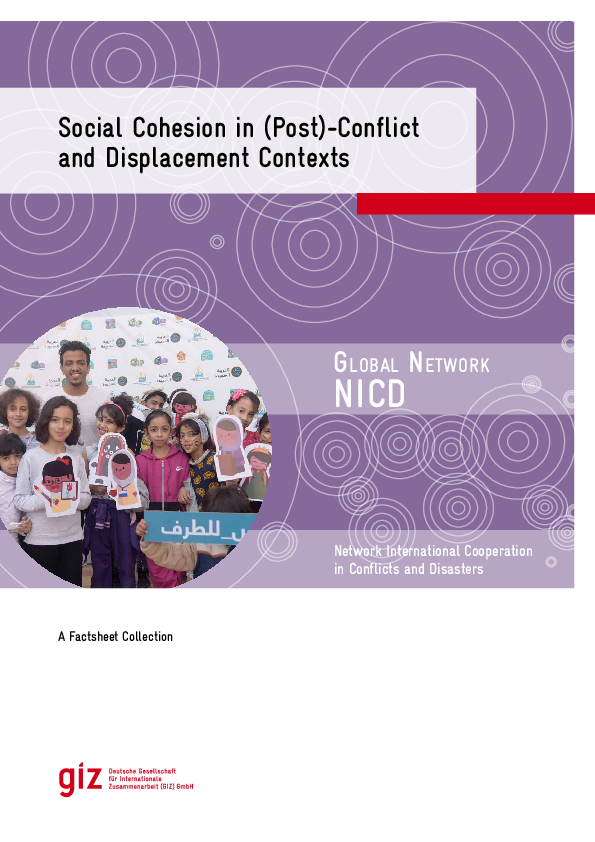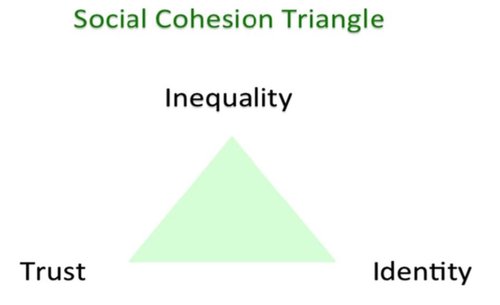Social Cohesion in (Post)-Conflict and Displacement Contexts
Key facts
Intergroup relations
Identity/feeling of belonging
Participation
Equality/Inequality
Solidarity
Cooperation
Tolerance
Connectedness
Latin America and Caribbean
Sub-Saharan Africa
Flight & migration
Concept & measurement
Summary
The relevance of social cohesion has been recognized by BMZ 2030, which features “peaceful and inclusive societies” as one of five core areas. The GIZ Network International Cooperation in Conflicts and Disasters (NCID) and its Working Group “Social Cohesion in Contexts of (Post-)Conflict and Forced Displacement”, together with the WG “Displacement, Return and (Re)Integration” has put together a collection of 24 factsheets from NICD member projects around the world working on one or several dimensions of social cohesion. With this, GIZ hopes to provide an overview of the manifold approaches that exist within GIZ. In addition to this, each project has provided information about its methodology and lessons learned when it comes to the measurement of social cohesion.





